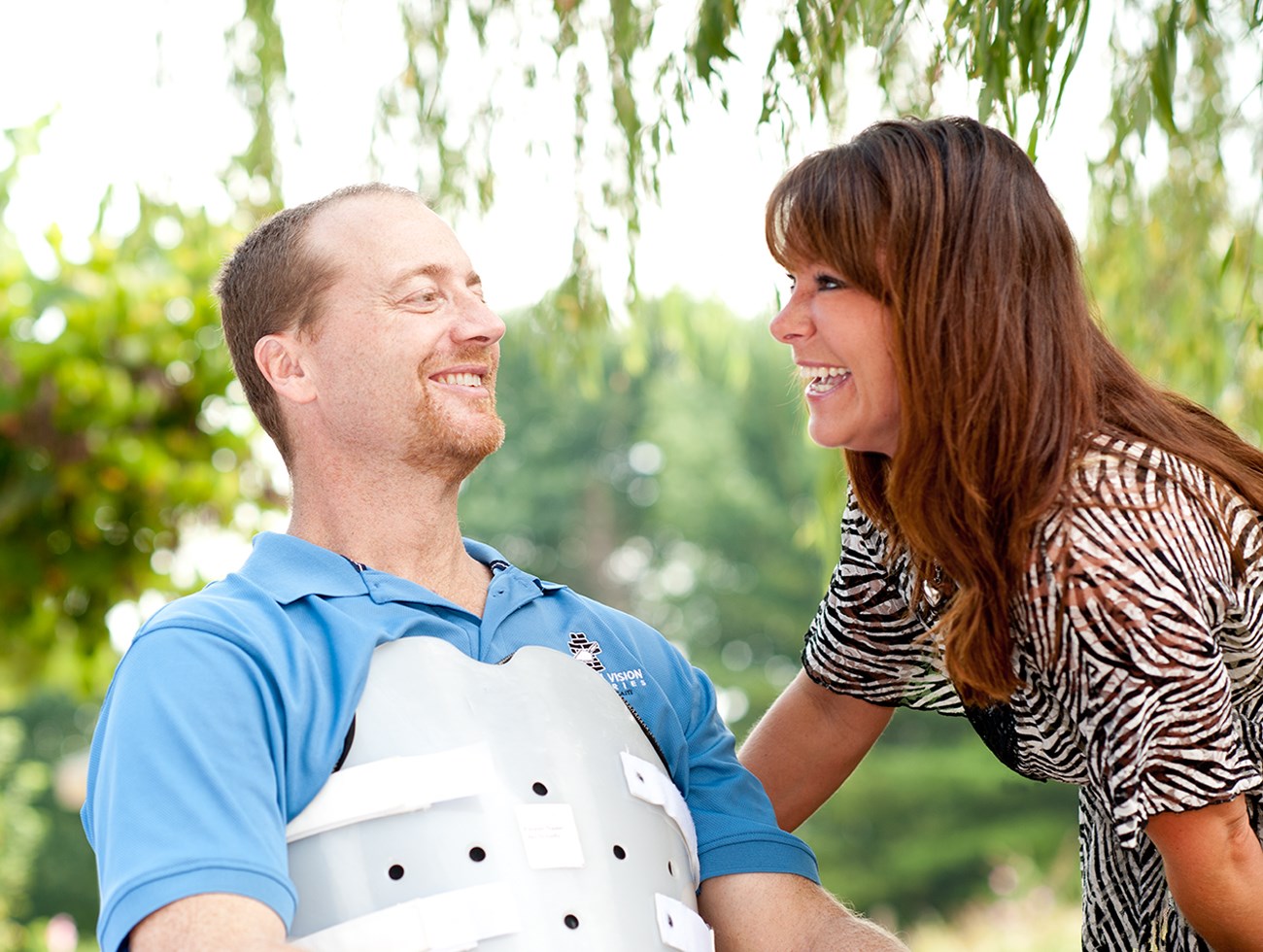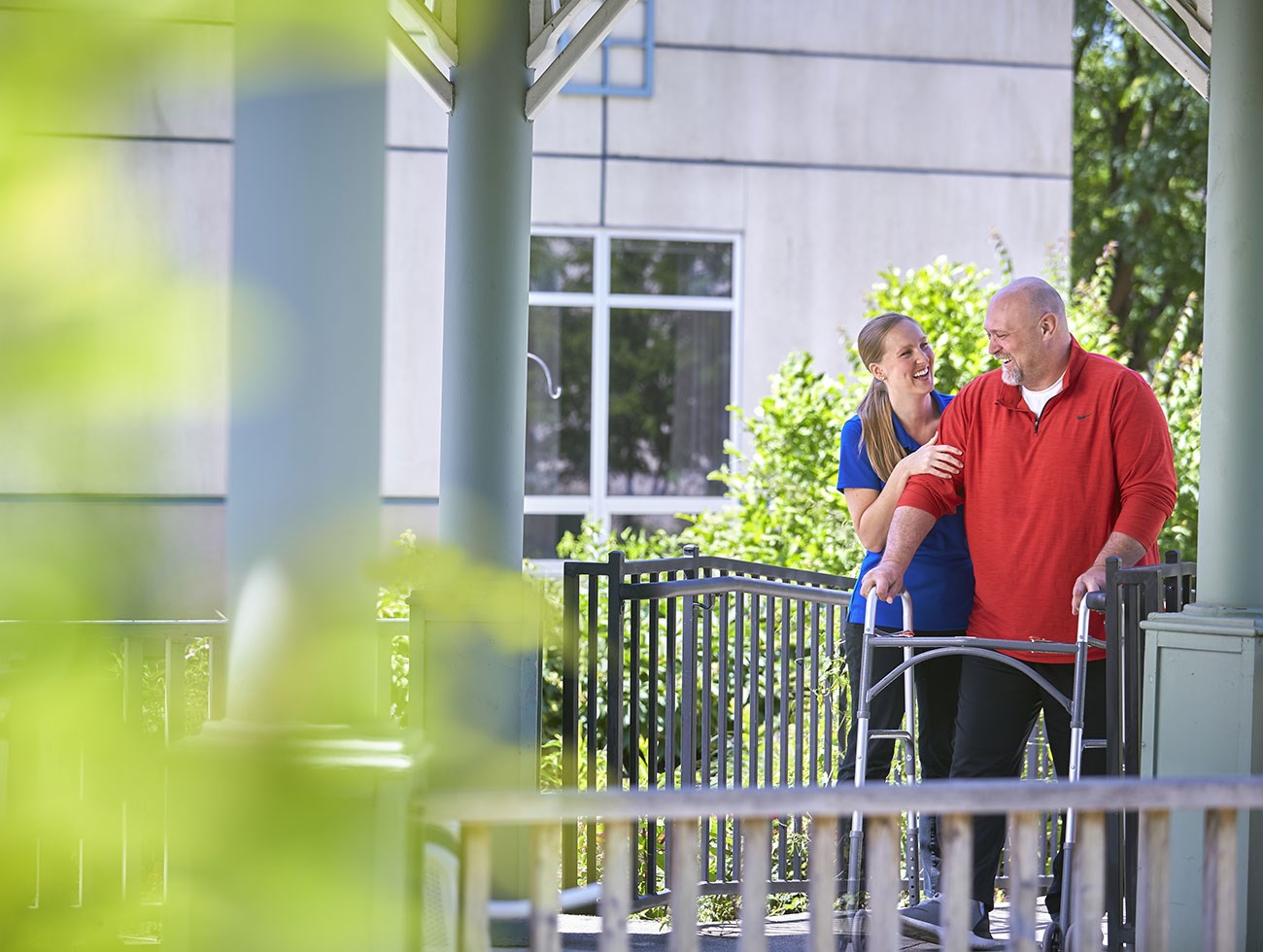
What to Expect as an Inpatient
Your Stay on the Spinal Cord Unit
The average length of stay on the Spinal Cord Unit at Rehabilitation Hospital of Indiana (RHI) is 17 days. Your length of stay on the inpatient unit will be determined by your specific needs. Approximately 70% of patients are discharged to the community after their inpatient stay.
Upon admission, you will receive a transition binder, which will include information pertinent to your rehabilitation program. This binder is meant to serve as a central location for patients and caregivers to keep important material throughout the continuum of care, as additional information and resource materials specific to your brain injury and recovery will be added to the binder periodically.
Working Toward Your Goals from Day 1
The first two days of a patient's care are key for both the patient and the family and caregivers, as goals will be set during that time. Family/caregivers should be present for days 1 and 2 to assist with goal setting.
Day 1
Your first day at RHI will be light to allow you to transition and get settled.
- The nurse will greet you when you arrive
- The nurse will do a head-to-toe assessment and ask you questions about your health
- A visit with your rehabilitation doctor is possible, depending on what day you arrive
- Family or a caregiver should be with you to help answer questions and get you settled in
Day 2
- Comprehensive evaluations by the treatment team
- Meet your care coordinator
- Meet with Physical Therapy, Occupational Therapy, and Speech-Language Pathology, who will each assess abilities and help set goals
- Meet with a clinical dietician
- Meet with a wound care specialist (if needed)
- Talk with your rehabilitation doctor (if not done on day one)
- Family or a caregiver should be with you to help set goals
Within the First Week
- You will meet your ongoing therapists who have specific training and experience with therapeutic interventions for patients at all levels of injury, the care coordinator, neuropsychology team, and dietary (as needed)
- The team will meet to discuss your treatment plan and goals and will develop a tentative discharge date
 RHI Care Coordinator encouraging Jay Shultz to keep reaching his goals.
RHI Care Coordinator encouraging Jay Shultz to keep reaching his goals.
Sample Daily Routine and Expectations
Patients receive a minimum of three hours of individual one-to-one therapy, 5 days per week. Time not spent in therapies can be used to rest and visit.
6:00 - 8:30 am*: Wake up, get dressed, and eat breakfast
8:30 am -12:00 pm: Morning therapy sessions
12:00 - 1:00 pm: Lunch (in common area) and rest
1:00 - 5:00 pm: Afternoon therapy sessions
5:00 - 6:00 pm: Dinner (in common area)
6:00 - 9:00 pm: Relax and get ready for bed
*Occupational Therapy or Speech Therapy may work with you before or during breakfast, depending on your specific therapy needs
What Else to Expect on the Spinal Cord Unit
- Caregivers and families are encouraged to be fully involved in the recovery and therapy process. Research indicates that patients make more progress when caregivers are involved. They should expect to do the following:
- be involved from day one as this is key to patient success
- participate in therapy sessions
- come to therapy sessions ready to learn and willing to participate
- attend spinal cord education classes with therapy and nursing
- understand that some tasks may pose challenges for both caregiver and the patient
- encourage the patient to act as independently as possible
- be prepared to do an overnight stay closer to discharge to get hands-on practice and ensure a smooth transition home
- Our goal is for patients in our spinal cord injury program to regain as much independence as possible
- While working toward independence, patient safety is the highest priority. Therefore, patients will be asked to wait for staff members to assist them with daily activities, including self-care, transfers, and toileting. Caregivers may assist their loved one once training with therapy has been completed.
- Patient progress and goals will be evaluated on a weekly basis to ensure the provision of appropriate treatments, training, and care at the patient’s current functional level.
- A tentative discharge date will be set at your first team conference
- Expect to receive a summary of this conference (held within the first week of your stay) that includes your current level of function, the estimated length of stay, team goals
- Your interdisciplinary team will then meet weekly to discuss your progress, barriers, and overall discharge plans
- See the Spinal Cord Injury Program FAQs page for further questions
 RHI therapists back patients in meeting and exceeding their goals through rehabilitation.
RHI therapists back patients in meeting and exceeding their goals through rehabilitation.
Working with an Interdisciplinary Team
During your stay, you will work with a specialized spinal cord injury interdisciplinary team including a physical medicine and rehabilitation (physiatrist) physician, physical therapist, occupational therapist, speech therapist, rehabilitation trained nurses, and when needed pulmonologist, respiratory therapists, psychiatrist, and neuropsychologist. This team is driven by a spirit of hope, healing, and compassion, providing flexibility, taking caregivers into consideration during patient care.
The OT checks current abilities and develops a treatment plan for meeting goals in Activities of Daily Living (ADLs) including:
- Self-care, such as dressing and bathing
- Leisure, such as hobbies
- Work-related tasks
- Problem solving to accomplish any of the above
- Fine-motor skill development and strengthening, such as hand and arm exercises
- Vision
The PT checks current physical abilities and develops a treatment program for meeting goals in:
- Mobility needed for ADLs such as exercising muscles and joints, moving in bed, using a wheelchair, transferring (for example, from the wheelchair to the toilet)
- Walking with or without equipment
- Stairs
The SLP works on communication, cognition, and eating skills including:
- Listening, understanding and remembering what is heard in a conversation
- Thinking quickly and putting thoughts into words
- Sounding out words and explaining ideas
- Reading, understanding and remembering what is read
- Writing and putting thoughts into writing
- Cognitive skills needed to complete IADL’s (meds, finances, scheduling, etc.) including problem solving, memory, attention, reasoning, mental flexibility
- If necessary, chewing and swallowing food since this involves the mouth and throat
The neuropsychologist tests for thinking abilities and provides help with:
- Understanding the links between brain injury, brain functioning and behavior
- Attention, memory, problem-solving skills, language skills and other areas of thinking
- Vocational recommendations
- Adjusting and coping with changes from a brain injury
The rehabilitation psychologist meets with patients, family and significant others to help with adjustment to hospitalization and disability. The psychologist collaborates with the rehabilitation team to support psychological and interpersonal functioning.
The Case Manager coordinates discharge plans and communicates with insurance or other payers about benefits. The Case Manager shares this information with the rehabilitation team to develop a plan that maximizes the rehabilitation stay. The Case Manager may have a background in either social work or nursing.
Doctors in the rehabilitation field who receive advanced training and certification in physical medicine and rehabilitation. Physiatrists are experts on how nerves, muscles, bones, and the brain work together. They look at the whole person, not just one symptom or condition.
Rehabilitation Nurses are very involved in teaching both patient and family about care needs and routines and have a variety of responsibilities:
- Monitor and oversee daily care
- Teach and help patients and families practice care routines
- Administer medication and teach patients and families about scheduled use and possible side effects
- Collaborate with other team members regarding rehabilitation goals and needs for community reentry
Personal Items You Should Bring
- 3-5 days worth of comfortable clothing
- Sweatpants/pull-on trousers with elastic waistbands/shorts (blue jeans are not recommended)
- T-shirts
- Undergarments
- Pajamas
- Socks
- Tennis shoes (shoes should be flat, loose-fitting, and have Velcro or shoe strings)
- Toiletries
- Toothbrush and toothpaste
- Comb/hairbrush
- Shampoo/conditioner
- Make-up
- Deodorant
- Razor and shaving cream
- Denture cleaner (if needed)
- A special soap to prevent infection will be provided by RHI
Available Services
- Assistive technologies including access to environmental controls
- Peer visits
- Spinal cord injury individual and group education classes
- Return-to-school, -home, and -work evaluations
- Custom wheelchair evaluations
- Evidence-based practice
Specialized Services
Depending on your specific treatment regimen, you might also need these specialized services:
- An individualized treatment plan for dysphagia
- Modified barium swallow testing
- Community outings